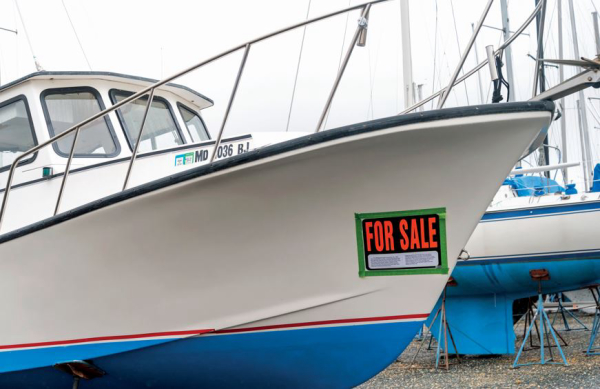BoatUS: 3 Best Practices to Follow for Your Boat’s Long Winter’s Nap
SPRINGFIELD, Va. – Across much of America, millions of recreational boats have been laid up for winter storage. With the boating season officially over, some boat owners may think they are free and clear for the next six months. However, Boat Owners Association of The United States (BoatUS) offers three best practices for winter storage to ensure the off-season goes smoothly and safely.
1. If you haven’t done so yet, read your marina, boat club or storage facility contract. Every page. Why? This document clearly specifies critical safety rules to live by over the winter. Don’t assume that because you read one contract they’re all the same. Different contracts apply to the specific type of winter storage you might have, such as outdoor, indoor or boats stored on a rack. Contracts also include work rules. Some common ones may include no work of any kind (most often for boats in rack storage but also sometimes for indoor storage), prohibiting outside contractors, no heaters or portable generators, or batteries must be disconnected. Why all the rules? There’s no getting around the fact that vessels tightly stored together tee up an increased fire hazard. So, for the greater good of everyone in winter storage, follow these rules to the letter.
2. Say “no” to power cords. While this best practice could have been included above, it deserves its own mention. Ask any marina owner what keeps them up at night over the long winter storage period and they will tell you one item at the top of the list is power cords. Undersized and multiple cords connected together are not only a potential source of ignition but make whatever they are plugged into, such as a battery charger or heater, another fire issue. If you need power to the boat to do some off-season work, check with your marina first. Some marinas may also require notification of any work you wish to do.
3. Visit your boat – safely. BoatUS recommends checking on your boat at least once during the off season, though more often is better. This will help ensure animals don’t make a home and your cover or shrink wrap is still effectively shedding ice and snow. When visiting the boat, it’s best to find a parking spot away from vessels on jackstands. Don’t move or adjust jackstands, and never tie off a winter cover to them. If you need to use a ladder to climb aboard, tie it off at the top. If your boat is stored in the water, bring a friend with you so a slip off an icy dock doesn’t go unnoticed.






